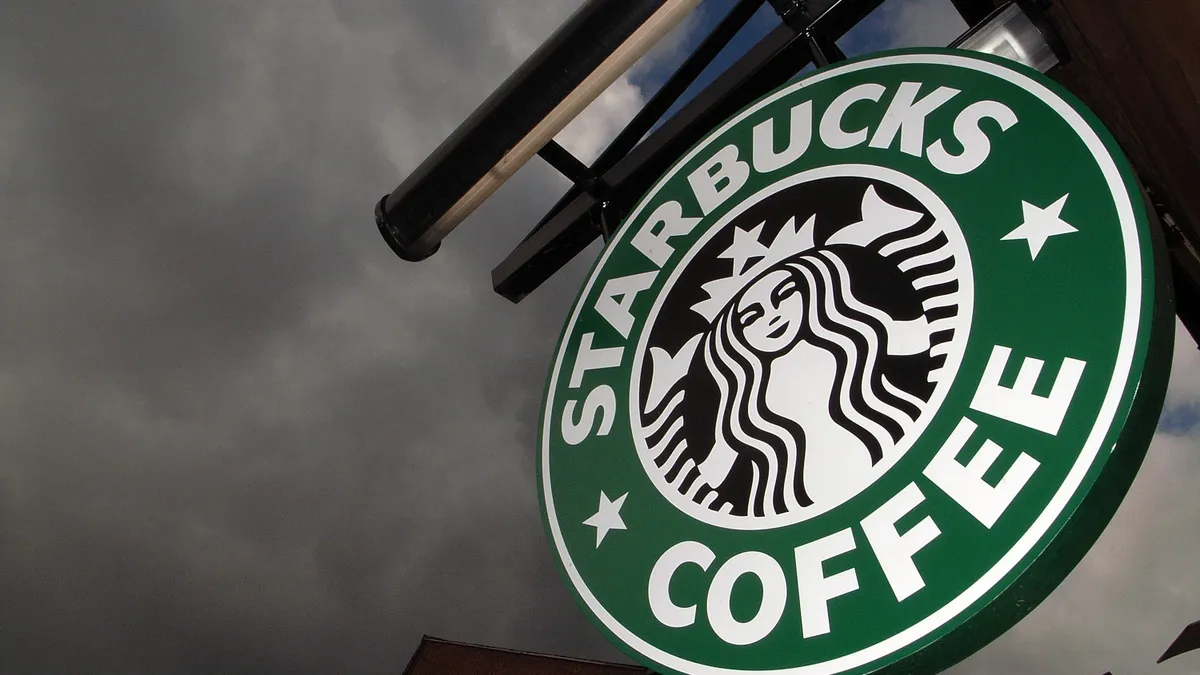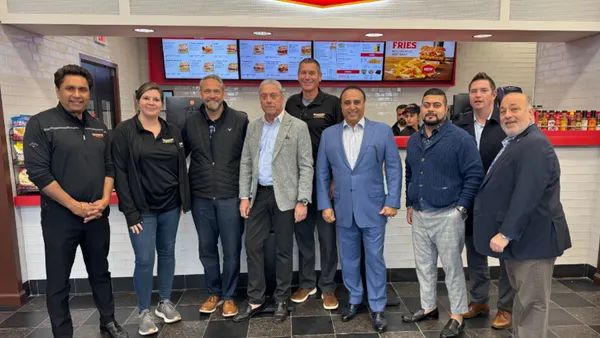Dive Brief:
- Starbucks named Laxman Narasimhan as its next CEO and member of the board of directors, the company announced Thursday.
- Narasimhan, who most recently served as CEO at consumer health company Reckitt Benckiser Group, will join the company on Oct. 1 and work alongside interim CEO Howard Schultz until assuming the role and joining the board April 1, 2023.
- Hiring Narasimhan fulfills Starbucks’ promise to bring in a leader from outside the company as it searched for a “different kind of leader.”
Dive Insight:
While Narasimhan has 30 years of experience working with global consumer-facing brands, including PepsiCo and McKinsey & Company, he doesn’t have any restaurant experience. Narasimhan most recently helped Reckitt through a strategic transformation and brought the company back to growth, according to the press release.
During the transition, Narasimhan will work with Schultz and the management team as he gets to know the coffee chain’s employees and customers and better understand the brand, company culture and its reinvention plan. He will initially visit Starbucks stores, manufacturing plants and coffee farms, as well as connect with staff around the world and Starbucks’ long-term partners. Once Narasimhan takes over as CEO, Schultz will remain on the board and act as an ongoing advisor.
Narasimhan’s appointment comes amid a broader executive shakeup at the coffee chain, which began at the start of Schultz’s third tenure in April. This period is also marked by Starbucks’ ongoing struggles with unionizing workers across its system. Narasimhan’s experience in transforming brands could bode well for Starbucks’ future as it refines its identity and systems in the face of an evolving, and sometimes contentious, labor landscape.
Under Schultz’s direction, Starbucks implemented sweeping benefits improvements at non-union stores, which drew the ire of Workers United and regional offices of the National Labor Relations Board. The company also closed 16 stores, including two unionized cafes, over safety issues.
Starbucks Workers United has alleged the company fired union leaders, cut the hours of union stores, and engaged in unfair labor practices – accusations the company categorically denies. The union has increased its organizing efforts, building up a national strike fund to support confrontational strikes and readying workers for protracted bargaining fights. The company’s repeated efforts to quash organizing led a group of investors to call on Starbucks to adopt a neutral stance. In a statement, Schultz praised Narasimhan’s “partner-centered approach” to leadership as an asset for the chain as it navigates “a new era of greater well-being,” which may be a nod to the chain’s approach to labor issues.
The company’s future is being shaped by major operational pivots, as well. In July, Schultz called for Starbucks to reinvent itself, pushing for a redesigned store experience and improved conditions for employees. At that point, Starbucks had already pledged $1 billion to employee benefits and in-store technology.
Shifting customer sentiment has caused trouble for the chain, too. During Starbucks’ Q2 earnings call, Schultz blamed rising demand for hyper-customized drinks for strain on the company's U.S. system. He later backtracked on that assessment, highlighting such customizability as a major point of comparative advantage for the company during its Q3 earnings call – perhaps reflecting ongoing strategy evolution at the chain.
The company hired Frank Britt as chief strategy officer in April, tasking the former workforce development executive with long-term strategies to improve employee and customer experiences. This pivot includes an emphasis on drive-thrus in new store designs, and Britt’s role has since been expanded to chief strategy and transformation officer.
Other notable executive changes – in addition to the departure of Starbucks’ chief counsel and hire of a McDonald’s alum as CTO – include Rossann Williams’ exit in June. Williams, president of Starbucks North America, had been personally involved in efforts to persuade workers in Buffalo to reject union organizing, according to union supporters in Buffalo.
Most recently, Starbucks’ announced it will dissolve the chief operating officer role after current COO John Culver leaves the post on Oct. 3. This change means Starbucks’ daily business operations, including customer and cafe functions, will now also be directed to Narasimhan when he becomes CEO.











